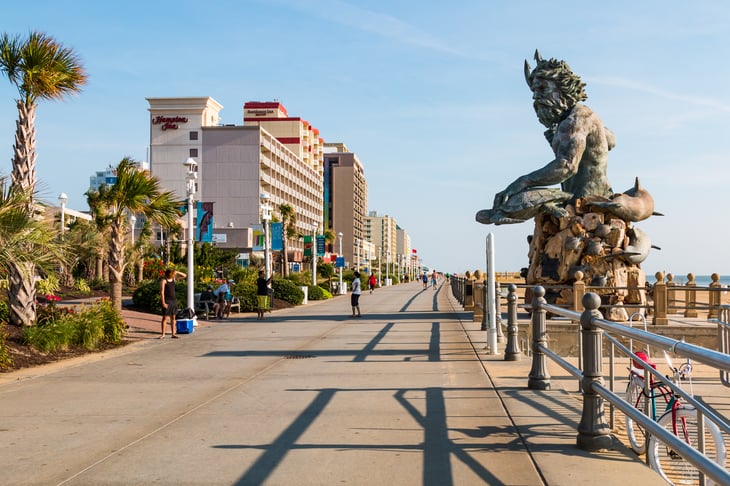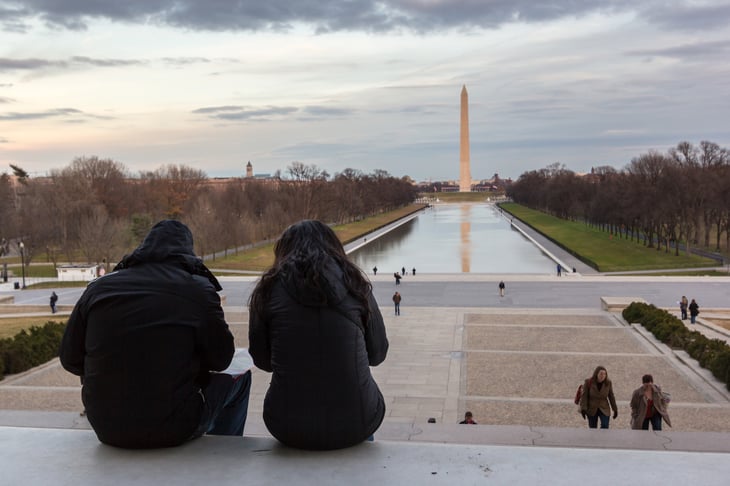
Whether it’s to pay for wants or just to pay for necessities, Americans are accumulating more credit card debt.
A recent CompareCards.com study found that credit card balances increased by an average of 3.6 percent from September 2017 to September 2018 in the nation’s 50 biggest metropolitan areas. And the average credit card balance by city was as high as $7,649.
Spending with credit isn’t necessarily a bad thing, though.
CompareCards.com notes that it could signal higher consumer confidence, for example. And as long as you pay off your balance in full each month, you will avoid racking up interest charges.
Of course, racking up credit card expenses can be risky.
If you miss payments, for example, it can cost you a late fee, ding your credit score or prompt your credit card company to raise your interest rate.
Carrying a large balance can also be stressful and hamper financial goals such as saving money for retirement, the kids’ college funds or an emergency fund. Not to mention that maxing out your credit cards can hurt your credit score because it increases your utilization ratio — the percentage of credit available to you that you are using at a given time.
If you find yourself in credit card quicksand, there are many solutions — including budgeting, making more frequent payments or requesting a lower interest rate. Or, if you’re really struggling with debt, turn to a trustworthy credit counselor for expert help.
Following is a look at the major U.S. cities with the highest credit card balances.
10. Hartford, Connecticut

Average credit card balance: $6,468
Average balance change over one year: decreased 2.1 percent
Everyday expenses such as groceries and transportation cost more than the national average in this Connecticut River Valley city, former home of Mark Twain and Harriet Beecher Stowe, according to U.S. News & World Report.
However, the costs of renting and buying a home — a median of $1,028 per month and $206,383 per home, respectively — are lower in Hartford than the national average. In fact, the cost of housing has actually declined there for the past decade despite the national median cost of housing increasing over the same period.
9. New York City

Average credit card balance: $6,556
Average balance change over one year: increased 2.8 percent
Not surprisingly, Manhattan — one of five boroughs that comprise New York City — is the most expensive place to live in the U.S., with a cost of living that was 138.6 percent of the national average in 2018. The NYC borough of Brooklyn is the fourth-most expensive place to live in the U.S.
Living in New York City means having endless options but also endless temptations to rack up credit card bills. And of course, it can be even worse if housing takes a big chunk out of your income.
8. San Jose, California

Average credit card balance: $6,649
Average balance change over one year: increased 10 percent
Silicon Valley’s largest city recently topped Zillow’s list of the hottest U.S. housing markets for 2019, with a median home value of about $1.25 million.
With San Jose enjoying a continued high-tech boom and the nation’s lowest unemployment rate, consumer spending — and credit card debt — seem unlikely to drop anytime soon.
7. Seattle

Average credit card balance: $6,672
Average balance change over one year: increased 5.5 percent
According to PayScale, the cost of living in the Emerald City is 49 percent higher than the national average — and the cost of housing is 94 percent higher than the national average.
Of course, other major expenses also are above average — including groceries, utilities and health care.
6. Baltimore

Average credit card balance: $6,722
Average balance change over one year: increased 4.6 percent
This Atlantic seaport boasts the National Aquarium and the festival marketplace Harborplace, a major tourist and shopping destination — as well as a higher than average cost of living. Forbes lists Baltimore’s cost of living at 6 percent higher than the national average.
5. Austin, Texas

Average credit card balance: $6,924
Average balance change over one year: increased 12.3 percent
This rapidly growing Texas city is home to lots of high-tech, lots of music and lots of rising expenses. In June 2018, rents in the state capital reached about $1,300 per month, Austin’s highest ever, CompareCards.com reports.
4. San Diego

Average credit card balance: $7,023
Average balance change over one year: increased 9.9 percent
The cost of living in San Diego means a four-person family in this southern-border metropolis can expect to shell out roughly $3,200 each month, on average — and that doesn’t include housing costs.
According to a recent local news report on housing insecurity in San Diego, low-income residents are spending around 68 percent of their income on mortgage payments or around 95 percent of their income on rent.
3. Virginia Beach, Virginia

Average credit card balance: $7,035
Average balance change over one year: increased 0.8 percent
According to a study by GOBankingRates, you needed an income of about $67,600 to live comfortably in this southeastern Virginia coastal city in 2018, a 28 percent increase from the previous year.
Sperling’s Best Places rates the city as having higher costs of living for housing, health care and other expenses compared with the national average.
2. San Francisco

Average credit card balance: $7,259
Average balance change over one year: increased 9.2 percent
Zillow estimates that the median home value in San Francisco is about $1.37 million — a 6.1 percent increase from the previous year.
San Francisco is also loaded with high-end restaurants and entertainment options, which can increase the temptation to whip out the plastic to pay for it all.
1. Washington, D.C.

Average credit card balance: $7,649
Average balance change over one year: increased 3.8 percent
The cost of living is high in the nation’s capital, but, thankfully, the median income there of about $73,000 is among the top five nationwide.
What’s your take on this news? Share your thoughts by commenting below or on the Money Talks News Facebook page.





Add a Comment
Our Policy: We welcome relevant and respectful comments in order to foster healthy and informative discussions. All other comments may be removed. Comments with links are automatically held for moderation.